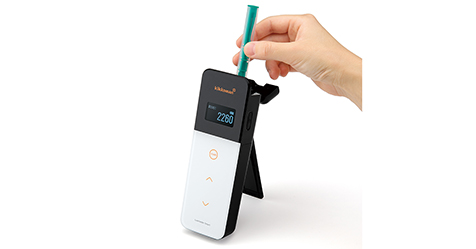COVID-19 Update—Study Questions Effectiveness of Surgical and Cotton Masks
Masks do not replace respirators for coronavirus protection
Surgical and cotton masks provide limited protection
As supplies of N95 respirators dwindle, many frontline workers are relying on surgical and cotton masks to protect them from contracting COVID-19. However, a new study published this week in the Annals of Internal Medicine found that these substitutes are ineffective in blocking droplets of the virus SARS-CoV-2 that are generated when someone coughs.
Researchers at the Ulsan College of Medicine in Seoul, South Korea, had patients cough into a petri dish while wearing no mask, wearing surgical masks, and wearing cotton masks. The scientists then swabbed the outer and inner surfaces of the masks, finding SARS CoV-2 on all surfaces. This led them to believe that when patients coughed into either type of mask, droplets of SARS–CoV-2 were released into the environment.
The investigators found greater contamination on the outer surface of the face masks than on the inner surfaces, suggesting the masks provided some protection. They concluded their observations strongly support the importance of hand hygiene after touching the outer surface of masks.
Permanent changes predicted for cleaning
Once the world recovers from the coronavirus pandemic, things will never go back to exactly the way they were before—especially cleaning. Experts in the cleaning industry say the way people clean and disinfect hospitals, long-term care centers, stores, offices, and even homes will change forever, CTV News reports.
Hospitals are operating on surge capacity protocols and have doubled their routine cleaning and disinfection efforts, along with stores, banks, and other facilities that house essential services. Cleaning professionals in hazmat suits are disinfecting buildings that housed people with confirmed cases of COVID-19.
Cleaning industry officials predict that the pandemic will not only result in an increased demand for cleaning staff, but also an increased push for these workers to be certified. Many industry leaders recognized the need for certification before the pandemic, such as ISSA which offers a variety of courses through its Cleaning Management Institute (CMI) as well as a variety of webinars. The GBAC Fundamentals Online Course is a brand-new offering in response to the pandemic. A virtual seminar from the Global Biorisk Advisory Council® (GBAC), a division of ISSA, this course will train attendees to prepare for, respond to, and recover from biohazards in the workplace. Individuals who successfully complete the course within 30 days of enrollment will receive a Certificate of Completion from GBAC.
OSHA poster details safe work practices during a pandemic
The U.S. Department of Labor’s Occupational Safety and Health Administration (OSHA) has created a new poster listing steps that workplaces remaining open during the pandemic can take to reduce the risk of exposure to coronavirus.
Some of the 10 infection prevention measures include:
- Encouraging sick workers to stay home
- Establishing flexible worksites and staggered work shifts
- Discouraging workers from using other workers’ phones, desks and other work equipment
- Using U.S. Environmental Protection Agency-approved cleaning chemicals with label claims against the coronavirus.
Kudos for environmental services workers
We end this news roundup with a video of health care workers in Spain honoring hospital environmental services workers with a round of applause.

